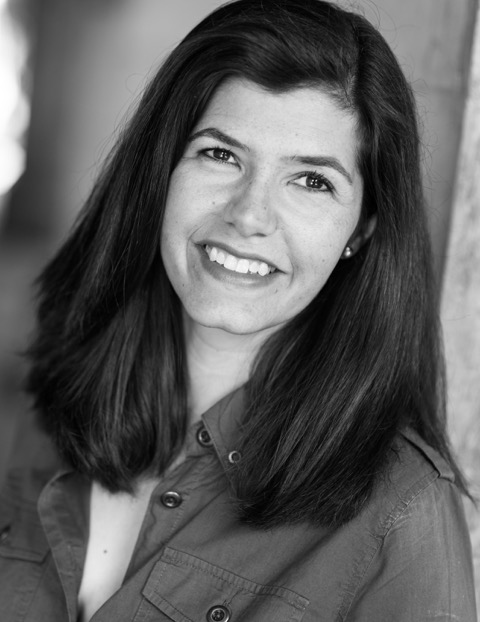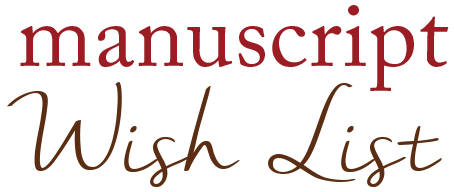MOLLY: Can you cast your mind back to the dark days of the query trenches and tell me about how you decided which agents to approach? When you thought about the kind of agent you wanted, what skills or experience or other qualities were most important to you?

KAT: Ah, the trenches. Those were fun times. *cough*
I knew pretty much nothing about the publishing industry when I began querying, but I tried to take a vaguely methodical approach. I knew I wanted an agent with strong editorial focus, enthusiasm (of course), who was well connected, and who had excellent communication skills, so I focused on finding out which agents ticked those boxes.
I googled agencies I’d heard of and checked out any lists of up-and-coming/top-rated agencies I could find online, and looked for agents who were a) actively seeking new clients, and b) specifically looking for the genre/type of novel I’d written. I also checked the acknowledgements pages of authors whose books were in the same bracket as mine; if they mentioned their agent (which authors generally do), I would make a note of the agent for further research. When I had a list, I filtered as much as I could: Did the agent indicate their response times, and stick to them? Did the agent have a good sales record? Did the agency have a good reputation? What did their clients say about them online (on Twitter, blog posts, etc.)? Did the agent come from an editorial background? Did they already have hundreds of clients, and how many of those clients had book deals? Not all of that information was available for each agent, but there was plenty out

there to give me an idea of which agents to put at the top of my list, and which ones might not be the best fit after all.
MOLLY: I know contests were useful to your process. Can you talk a little bit about how you prepped for them?
KAT: While I was querying, I entered a couple of contests where a pitch/query and first page of the manuscript were showcased for agents to bid on (shout-out to Brenda Drake for her excellent contests!) and a couple of Twitter pitch contests. I fared much better with the former—probably because my first page was quite grabby, even if my query was just OK. You requested my partial in a Cupid’s Literary Connection contest (I believe the site is no longer active, but may be wrong…) and it’s difficult to describe that ‘YES!’ moment without a lot of gifs.
As far as Twitter pitch contests like #PitMad go, I’ve seen them work out extremely well for writers who have that particular skill of paring down a novel to a good 140-character pitch—one that manages to outline the concept, stakes, and tone of the story. It’s always interesting to check out these contests whether you are taking part or not, as it can give you an idea of what works—what’s getting lots of attention from agents, and what’s churning up tumbleweeds.
Prep-wise, I tested out my query and pitches on writer friends, tweaking them until I had something I thought (hoped) would be attention-grabbing. I also only entered contests where I had checked out the participating agents to see that they were looking for something like my manuscript, and were agents who were on my query list.
MOLLY: You signed with me after you revised and resubmitted one of your projects based on notes I’d given you. I always worry that an R&R must feel like a lot of pressure for a writer—does it? If my notes hadn’t felt right for your vision for the project, what would you have done?
KAT: I saw it as an opportunity, honestly. Your revision notes gave me an insight into what you believed would make my book better, and you got to see that I wouldn’t be an absolute nightmare to work with! So even before I signed with you, we’d had a sort of trial period to see if it would work out. And you told me to take as much time as I needed to get the revision done well, so I didn’t feel pressured in that respect, either.
If I hadn’t agreed with your editorial notes, though, I would either have suggested alternative changes to see if they would work for you, or, if our ideas were poles apart, I would have taken it as a sign that we weren’t a good fit. In that case, as disappointing as it would have been for me, I would have let you know that the revision notes weren’t in line with how I saw my book, thanked you for your feedback and time, and headed back into the query trenches.
MOLLY: How much research did you do about me before you signed with me? I usually Google the bejesus out of anyone I’m thinking of offering rep to; did you do the same? What sources were most useful?
KAT: Uh… I read everything I could find! Google told me about your history in the industry, sales announcements, and articles you’d written. I wasn’t an active member of the AbsoluteWrite or Querytracker sites, but I did find mentions of you there—overwhelmingly giving positive comments about your fast and kind responses, which I definitely saw as a plus. I felt quite creepy about all the googling, but it was useful.
I also used the Bent Agency’s website as a springboard to find out more about your clients and the types of books they wrote, and during The Call you offered to put me in touch with some of your existing clients so I could ask them what you were like to work with. I decided you had good taste in clients, which remains true! 😉
MOLLY: I hadn’t been an agent for very long before I offered rep to you — in fact, you were one of my earliest clients! It can be a big risk signing with an agent who’s new to the game. Would you recommend that other writers do so? What questions should they ask the agent? What should they be aware of?
KAT: I did think about it at the time, but you were very open about your experience and connections in other areas of the industry, so I wasn’t concerned. Had you been brand-new to publishing, or working for an agency that was also new or had a shaky reputation, it may have given me doubts, but that wasn’t the case.
I’ve seen it said many times that ‘a new agent is a hungry agent’, and that can certainly be true. A keen new agent may do a better job at selling an author’s work than an agent who is experienced but only lukewarm about the book. So I don’t think being new to agenting should by itself lead a writer to say either yes or no to an offer of representation. Having an experienced agent can be a plus, but so can having an agent who has a great agency supporting and mentoring them, one who is enthusiastic and well-connected, and who has a background in other areas of the publishing industry.
MOLLY: What do you remember about that first call? I remember I was nearly as nervous as you were!
KAT: When you first called, I didn’t ask many questions because I was a little shell-shocked that you were actually offering to represent me! Luckily you were well prepared and told me everything I needed to know. You gave me an idea of what further revisions we would need to do to my manuscript before it went out on submission; how and where you planned to submit it; how/how often you would let me know things like publisher responses; and what plans you had for my other manuscripts and long-term writing career. I came away from that phone call with all the information I needed to make a smart, considered decision, and felt completely confident that you were the agent I wanted to work with.
MOLLY: Well, that’s good to know, because I remember being convinced after that phone call that I wanted to work with you, too. And nearly four years later, I feel the same way. Thanks for sharing all this, Kat!
*
Kat Ellis is the author of the just-launched BREAKER (Running Press), which Kirkus calls “spine-chilling and splendidly gory” and which School Library Journal says is “a standout thriller”. Her first book, BLACKFIN SKY, was published in 2014 and her next novel, PURGE, will be published in fall 2016. Kat lives in North Wales and when she’s not writing, she can usually be found adventuring in ruined castles and cemeteries, taking photos of weird and creepy things to inspire her writing.
Molly Ker Hawn of the Bent Agency primarily represents young adult and middle-grade fiction.

